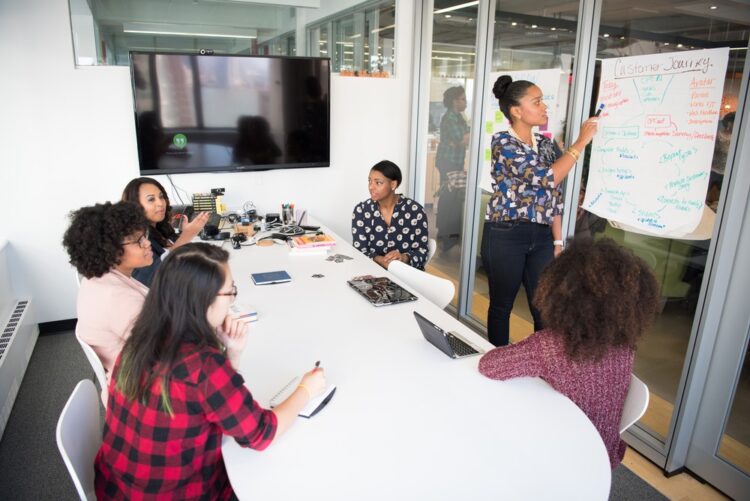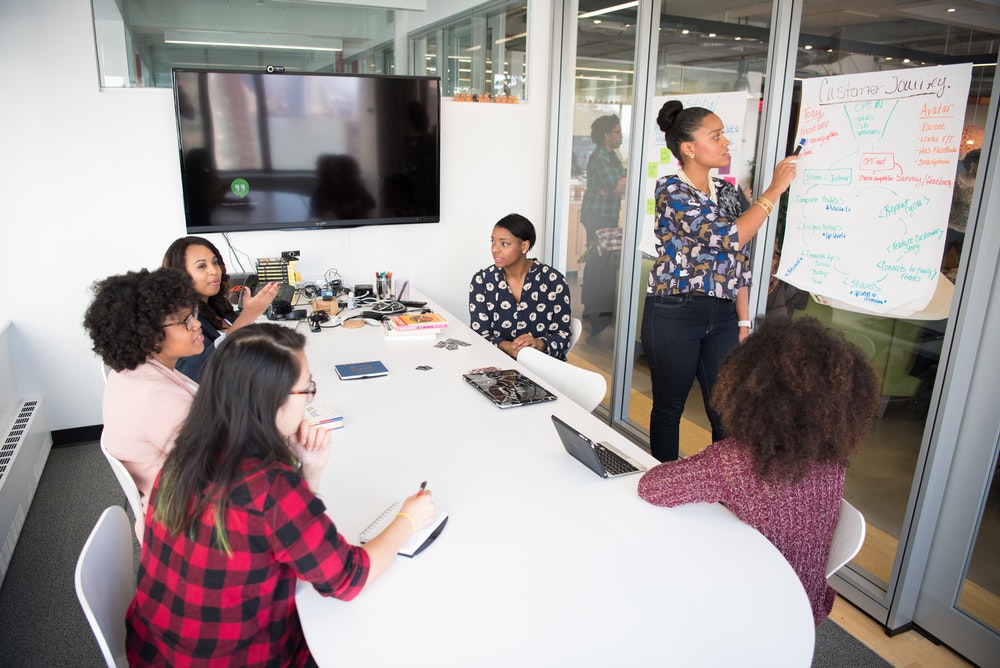In the midst of the pandemic, the election, and the resurgence of significant social justice movements, people operations professionals are needing to navigate a far more complex environment lately. We spoke to Sheila Sarem, the CEO & Founder of ProjectBASTA, an organization bridging the gap for first-generation students, along with an incredible group of leaders across a wide range of startups, Jac Meyer (Slice), Ariana Moon (Greenhouse), Joy Young (AiCure), and Lauren Sachar (Datadog) to discuss the current realities people operations professionals are facing and how the function is evolving and becoming much more dynamic.
Supporting an organization through ‘unprecedented’ times
In the wake of a pandemic that has impacted employees differently and resulted in a sudden shift to remote working for an indefinite amount of time, combined with the social justice issues we are facing as a nation, how does a people ops team best support everyone through this?
“It was a really tough period, and it was hard to focus. All the planning we did for 2020 had gone out the window due to COVID and we had to pivot to focus on the health and safety of the employees,” Ariana said. “There is no playbook for people teams on how to deal with a pandemic and economic downturn. It was a huge responsibility on the people team because we had to help weather the storm and move forward and create focus for our employees. We use the OKR framework [at Greenhouse] and the OKR became how we drive engagement and retention of the staff.”
Lauren shared the importance of balancing taking care of herself and team while also ensuring the teams she supports are cared for. “We have to balance the success of ‘people’ people in making sure they have the tools that they need. In terms of the broader organization, there are only so many touchpoints with each employee, so we lean on our people managers to make sure they are set up for success to have more vulnerable, potentially more emotional conversations and realizing that people are going to be held to potentially different standards as we navigate uncharted waters. For my team, we make sure we walk the walk and set boundaries. If we say, set boundaries and make sure you are taking PTO, but we aren’t doing it, then we are not setting the right example.”
Joy stressed the importance of open and intentional communication, and checking in on employees on a regular basis, and doing it in a way that works best for them. As Sheila has seen in her work with employees, it’s important to “give people the space to have an open dialogue about what is important to them.”
Maintaining current employee engagement and creating a great candidate experience remotely
Joy discussed the reality of growing the organization remotely, and shared that she hasn’t met 15% of AiCure’s workforce in person yet, and shared how she has adjusted the onboarding process in the new remote environment.
“Prior to COVID, we had a buddy system in place. Every new hire had an assigned ‘buddy’ in the organization. When you start, you’re having lunch with that person, they are reaching out before you start to give you a sense of what to expect. So now, the buddy system is virtual. We provide a stipend for lunch and the team lunches are virtual. We provide different SWAG now, pajama pants, a t-shirt, and a mask.
Ariana recognized that the remote environment is a “really big opportunity to be empathetic to candidates right now” by making sure that the times work for them, being understanding of wifi issues, and connecting with a “how are you?” before delving into the interview. This can make a big difference.
As for employee engagement, DE&I, and conversations around social justice movements have been integrated thoughtfully throughout organizations. Joy shared the importance of “embedding D&I initiatives into the culture, and not just ticking the boxes, but embedding it in the values, and living and breathing it. Even just having open and honest conversations and creating space to have those dialogues with employees.”
Ariana added that at Greenhouse they led an initiative called “virtual reality” where their Head of D&I leads Employee Resource Groups, mental wellness professionals, and communities of color to share how they have been impacted by COVID, police brutality, and social justice issues to the whole organization. “We found the conversations to be healing to have a safe space, to have a great facilitator, to have guidelines that are shared around the goals of the conversation. To have that space to come together and share and learn together was really important.”
People Operations in 2021 and beyond
There have been sudden changes in the way the people org works, and a lot of that shift is here to stay.
The importance of diversity and inclusion in the recruiting process and throughout an employee’s experience will only grow as companies evolve, especially from an employer brand perspective. Every panelist had their own diversity recruiting and inclusion initiative they were working on. Lauren said, “it’s a great signal to the rest of the industry that if this is what top talent cares about then it’s what everyone should be adjusting their organizations to reflect.”
Another takeaway was learning and development is also a growing part of the function to increase the retention of employees. Sheila shared that as a non-profit, “organizations come to us for employee engagement and learning and development to embed it into their broader team. Learning and development and bringing in diverse talent are interconnected — L&D also means diversity training and working together.”
Finally, remote working isn’t going away after the pandemic. Lauren pointed out a silver lining in the wake of the remote working, “is evening the playing field between the remote employees that we had before the pandemic and the office workers. The remote workers always felt they were less included and on the flip side, the ones working in the office now appreciate how tough working remotely can be and managers are seeing how effective people can be remote.”
Jac shared her thoughts about the incoming new workforce: “There is a disruptiveness in how younger generations are going to not only create change but sustain it. As people leaders, we have to be resilient and adaptable and that feels more important than ever before.”
We are incredibly appreciative of these leaders for sharing their own stories and challenges they’ve been facing recently. Stay tuned for more insights about how certain careers are changing during the remainder of 2020 and beyond.
Reprinted by permission.




